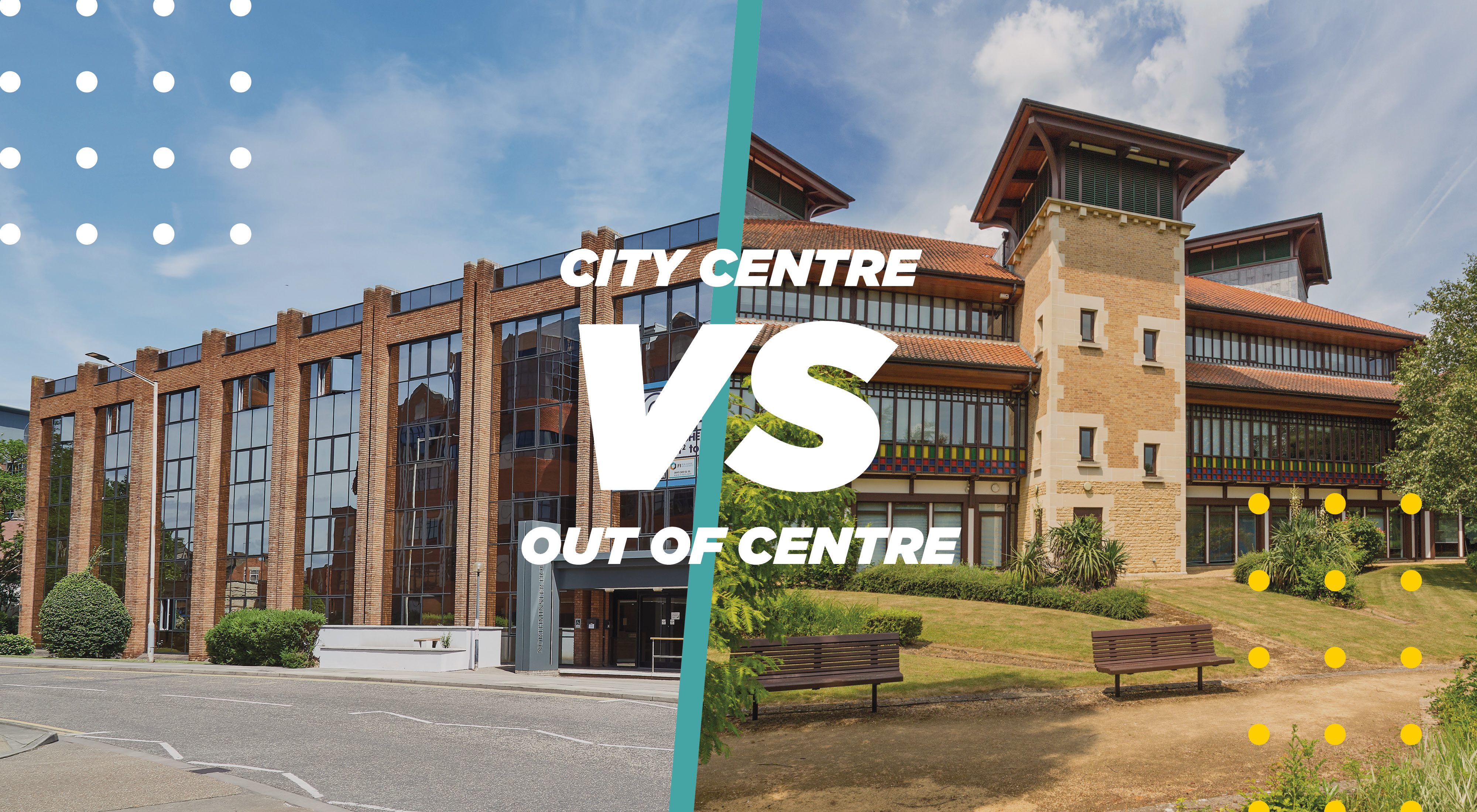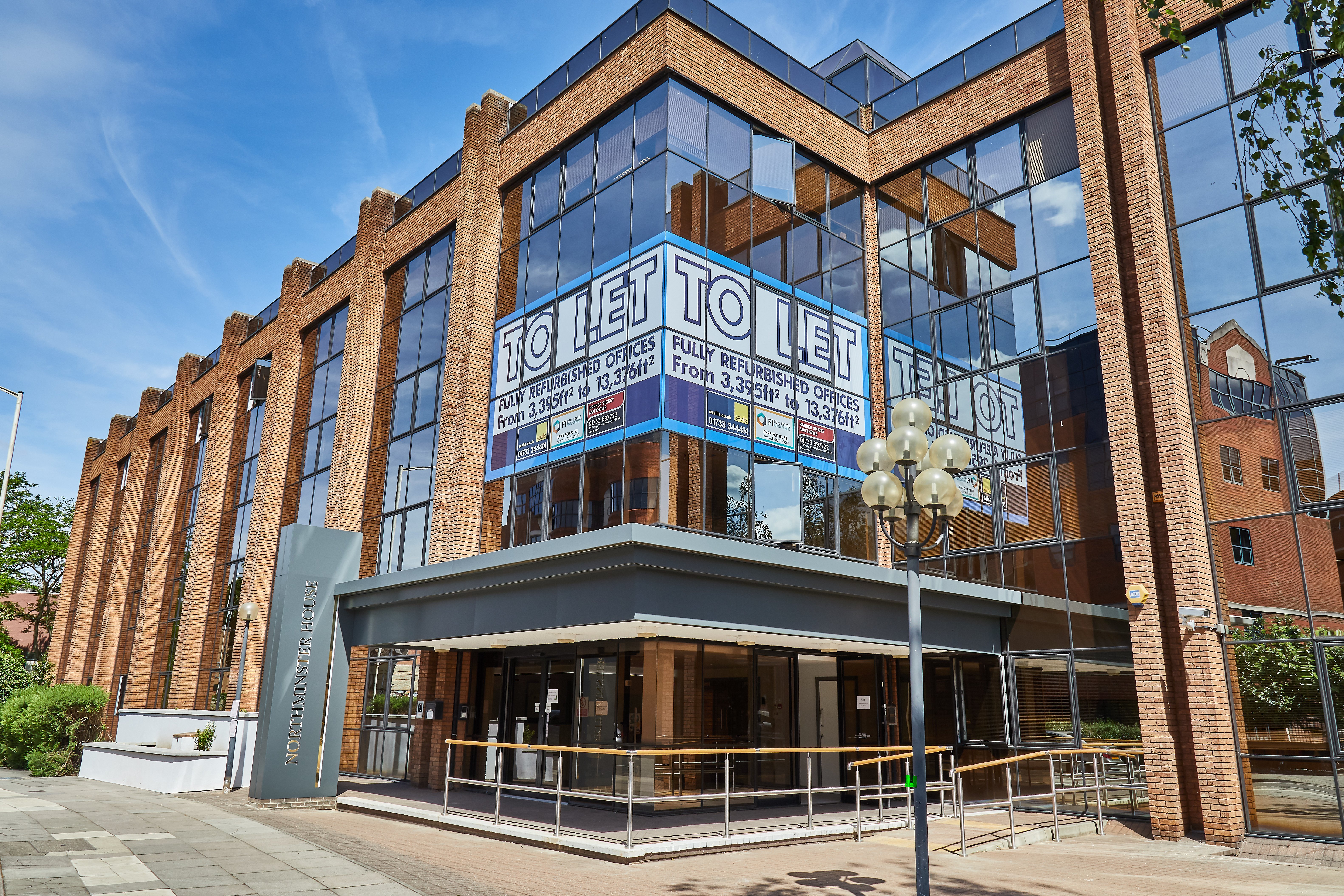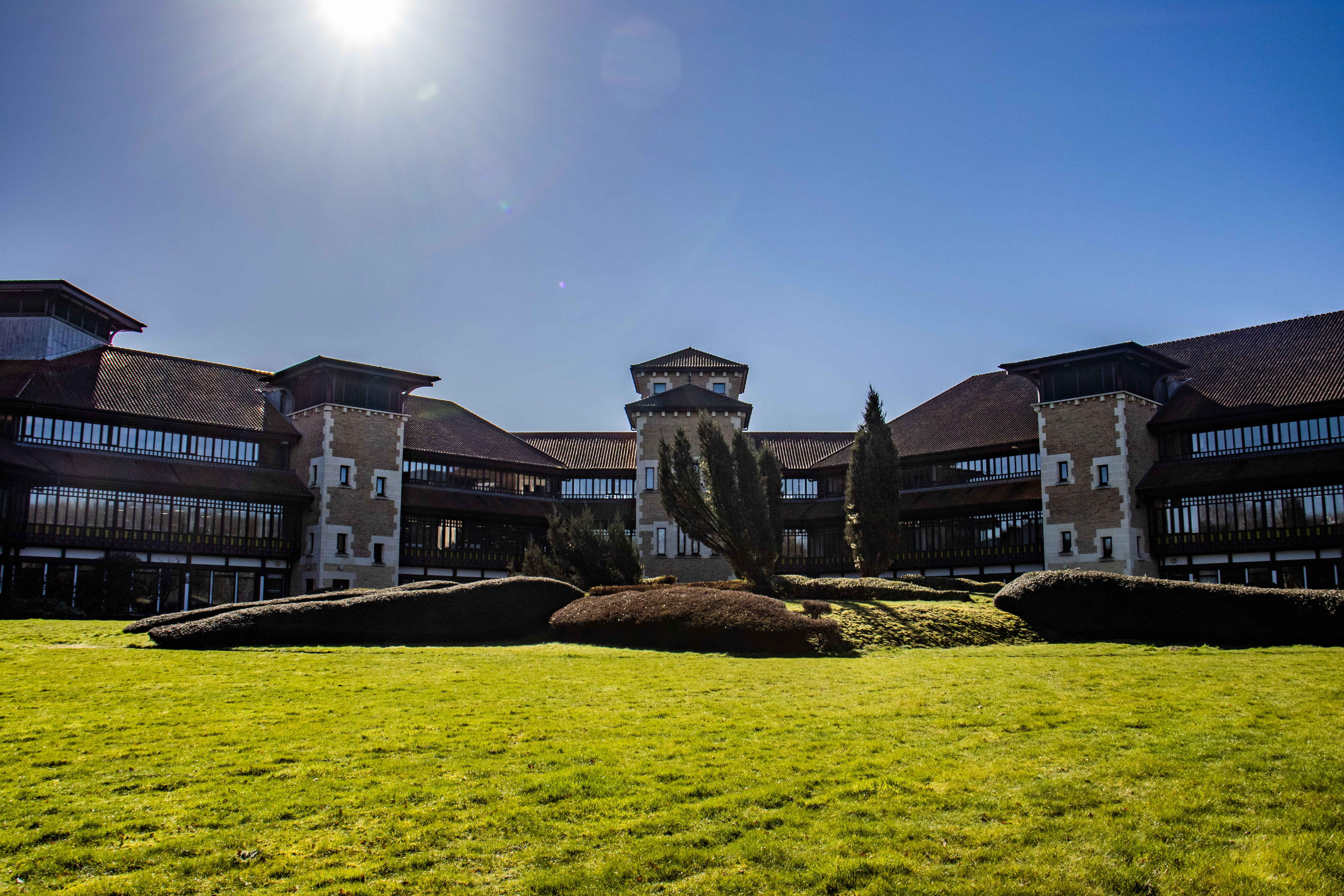
Office trends in a post-pandemic world continue to be a hot topic. Should a business opt for out-of-city office space to accommodate a new era of hybrid working? Are city centre transport links still valuable for businesses to stay connected? Can office space be flexible in both urban and suburban locations? The office market continues to evolve and so too do the needs of businesses.
In October last year, Savills released figures showing that office take up in Q3 was the highest since the start of 2020. Demand is returning to pre-pandemic levels. But what exactly are businesses looking for?
Over the past two years, many businesses have wiped the slate clean when it comes to their offices. Some opted for out-of-centre locations to support Covid-secure ways of working and others chose more flexible spaces to provide contingency for changing market conditions. The office market evolved under our feet and consequently, business needs have been ever-changing.
What has emerged as a result is a truly buoyant market full of variety and flexibility, with both out-of-centre and city centre offices offering an abundance of benefits. Many may assume that this is an ‘either or’ debate, but the synergies between urban and suburban office spaces are surprising.

‘Diversity of office space is key’
One thing that is undeniable about the office market is the need for diversity. Every business is different and their office space needs to suit their requirements. There is no ‘one-size-fits-all’ approach and businesses should be able to look at a location, review their options and go for the one that ticks the most boxes. We offer just this in Peterborough; on the one hand we have Lynch Wood Park, a leafy suburban office campus set in stunning landscaped grounds and on the other, we have Northminster House, a landmark office that provides high quality office space at the northern edge of Peterborough City Centre. These two are entirely different propositions but they share many qualities. They offer flexible spaces that can be tailored to business needs and crucially, they have been designed with the workforce at the heart.
In March 2021, JLL released a report into the future of UK regional office demand, which noted that collaboration and amenity space will become more central to the workplace. So what businesses clearly need is a variety of options of office space that share the common themes of high quality, accessibility and a host of features that are geared towards employee wellbeing.
‘Connectivity has been reimagined’
There’s an age-old argument that city centre offices are superior because they are better connected to a wide transport network and while that may have been true before 2020, the connectivity of the UK’s rail network has become less of a priority for businesses. In a post-pandemic world, businesses view connectivity completely differently. Out of necessity we embraced technology and this has changed the way we work to the extent that public transport is no longer number one on the list.
That said, changes to employee travel have created a slight shift in office trends. Out-of-city offices provide more parking, which is an advantage when a large proportion of a workforce wants to avoid public transport. There is of course a question mark over how permanent this trend will be. Businesses therefore need to build in contingency for future changes to workforce behaviour when opting for out-of-centre versus city centre offices.

‘Work-life balance is hard to define’
When it comes to post-pandemic office trends, a lot is said about work-life balance. Less is said about what this means and in reality, its definition is completely different for different people. Those with young families understandably want to balance their work and home life and the pandemic shone a spotlight on this important issue. But what does work-life balance mean to young professionals?
City centre offices have long been the hub for young professionals seeking the bright lights of urban living and the pandemic hasn’t changed this. Young professionals are the lifeline of our economic productivity and businesses that set up shop in city centre locations arguably attract a wider talent pool than those in out-of-centre offices.
That said, much more investment is being made into the amenities of out-of-centre developments that will help to redress this balance, offering young professionals the same benefits as urban offices. At Lynch Wood Park in Peterborough, for example, there is a full range of amenities you would expect from a city centre location but set within stunning landscaped grounds.
Click to find out more information about FI Real Estate Management’s available office space.
